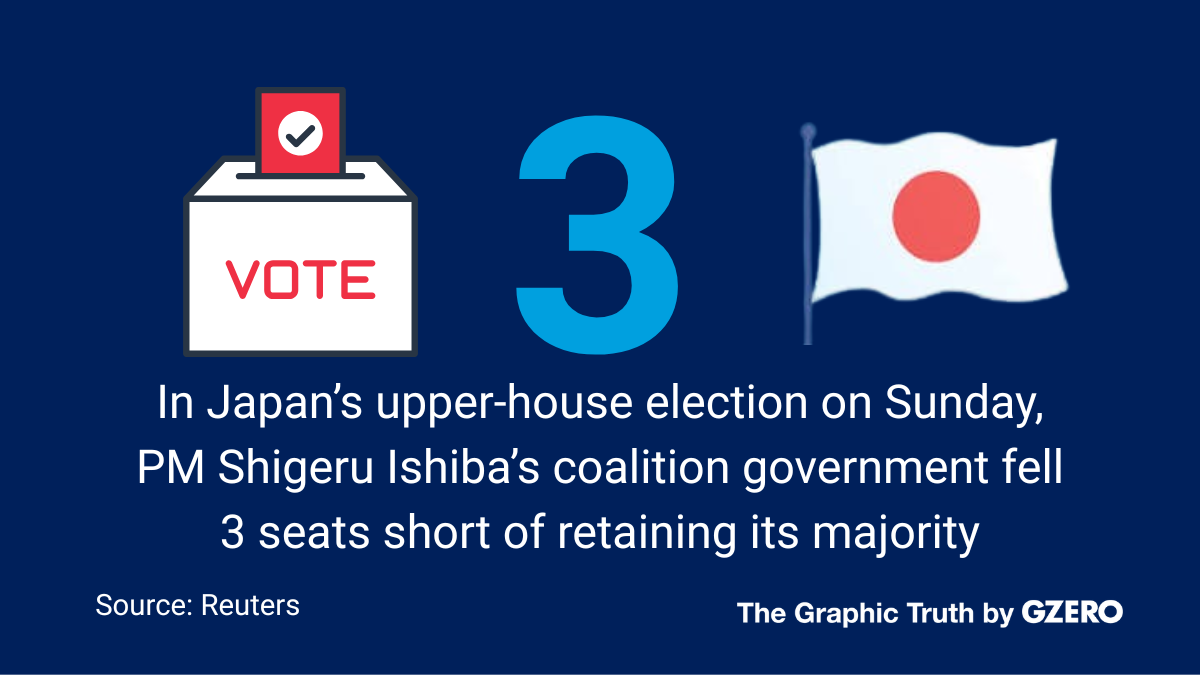July 21, 2025
Japan’s ruling coalition lost control of the upper house in Sunday’s election, further weakening Prime Minister Shigeru Ishiba amid growing domestic pressure and international challenges. To retain its majority, the Liberal Democratic Party and its partner Komeito needed to win 50 seats – they got only 47. This follows the LDP’s worst electoral showing in 15 years in last fall’s Lower House election. Rising inflation and opposition calls for tax cuts resonated with voters, while the far-right Sanseito party gained ground with a nationalist, anti-immigration platform. Despite the setback, Ishiba vowed to stay on, stressing the importance of upcoming US trade talks as Japan faces an August tariff deadline. For a refresher on why Shigeru was in such trouble to begin with, see here.
More For You
Global conflict was at a record high in 2025, will 2026 be more peaceful? Ian Bremmer talks with CNN’s Clarissa Ward and Comfort Ero of the International Crisis Group on the GZERO World Podcast.
Most Popular
Think you know what's going on around the world? Here's your chance to prove it.
Indian Prime Minister Narendra Modi isn’t necessarily known as the greatest friend of Muslim people, yet his own government is now seeking to build bridges with Afghanistan’s Islamist leaders, the Taliban.
French President Emmanuel Macron, German Chancellor Friedrich Merz, Ukrainian President Volodymyr Zelenskiy, U.S. Special Envoy Steve Witkoff and businessman Jared Kushner, along with NATO Secretary-General Mark Rutte and otherEuropean leaders, pose for a group photo at the Chancellery in Berlin, Germany, December 15, 2025.
Kay Nietfeld/Pool via REUTERS
The European Union just pulled off something that, a year ago, seemed politically impossible: it froze $247 billion in Russian central bank assets indefinitely, stripping the Kremlin of one of its most reliable pressure points.
© 2025 GZERO Media. All Rights Reserved | A Eurasia Group media company.
